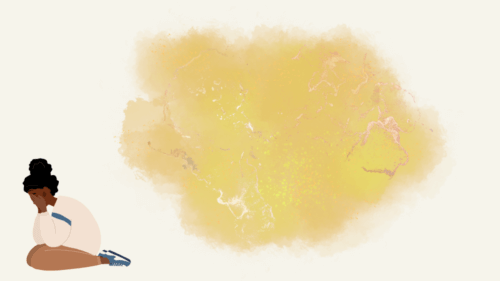Posted in Housing
When it comes to being a tenant, sometimes trying to do everything right is not enough. That’s a lesson that Amara* has learned in the hardest of ways.
Amara is a mother of three children, who also often cares for four of her nieces and nephews, since their mother tragically passed away. For more than eight months they were homeless or drifted between hotels while Amara searched for a permanent home.
She finally found a place and everything seemed to be going well for a few years, but when there was a problem with the pipes, everything started to unravel.
She repeatedly asked her landlord to fix the issues, but after a while she says, “I just stopped asking. I just gave up.” The home she’d found for herself and her children had become unlivable. She had no water at all.

“I just stopped asking. I just gave up.”
Finally, her landlord offered a solution. He would need to file for an eviction, but, according to him, that would actually be a good thing. He claimed that was the only way he could fix the pipes, and they would work out a payment plan on the rent she’d withheld since the water had gone out in the home. He said everything would be alright…but none of it was true.
At her eviction hearing Amara stood before the judge and tried to present the payment plan that her landlord had agreed to, only for the judge to say, “I don’t want to see any paperwork. The only thing that matters is if she has the money to pay the rent.” Even when the landlord tried to step in, the judge replied, “We don’t do payment plans here.”
And with that the situation had gone from bad to worse. Amara, and all seven children, were suddenly days away from being evicted from their home.

“I wanted to cry so bad. Now I feel I’m stuck.”
Fortunately, she was able to scrape together just enough money to pay in full before the deadline to avoid losing their home, but that wasn’t the end of her problems. Even though she was able to pay her rent in full and was never evicted, because of current South Carolina rules, even an eviction filing stays on a person’s public record permanently. Having an eviction filing on her record could come back to haunt her again and again.
All Amara wanted was to be able to provide a safe home for herself and her children. But even though she tried to do everything the right way, she could be followed the rest of her life by an eviction that wasn’t her fault.
On top of that, now she lives daily with the guilt that this situation has affected her ability to provide for her children. The older children have had to start to work, and she often must ask them to care for their younger siblings and cousins. She says, “My kids don’t have a childhood,” and she feels responsible. Which is one more unfair burden she shouldn’t have to bear.
This story is repeated all the time across South Carolina. Current South Carolina law allows for evictions and eviction filings – even when the eviction is settled or dropped – to remain on the public index permanently. Even though most evictions will automatically fall off a credit report after seven years, this does not apply to the public index. Many landlords will not even consider renting to a person who has anything related to an eviction filing on their record, regardless of the specific circumstances.
Then begins a seemingly endless cycle of applications – and application fees – only to be turned down, time and time again. When they do find a place, it’s often lower quality and can lead to a situation just like the one Amara faced.
And the cycle begins again.
Everyone in South Carolina deserves to have a safe, affordable place to call home. We’re working to ensure that tenants in South Carolina have access to due process rights and protections from frivolous evictions, and we believe something must be done to allow for old evictions and filings to be removed from the public record.
*Name has been changed to maintain confidentiality.
Stories help to put a human face on housing policy issues. By sharing your story, you help speak for people who may be facing issues just like yours.

